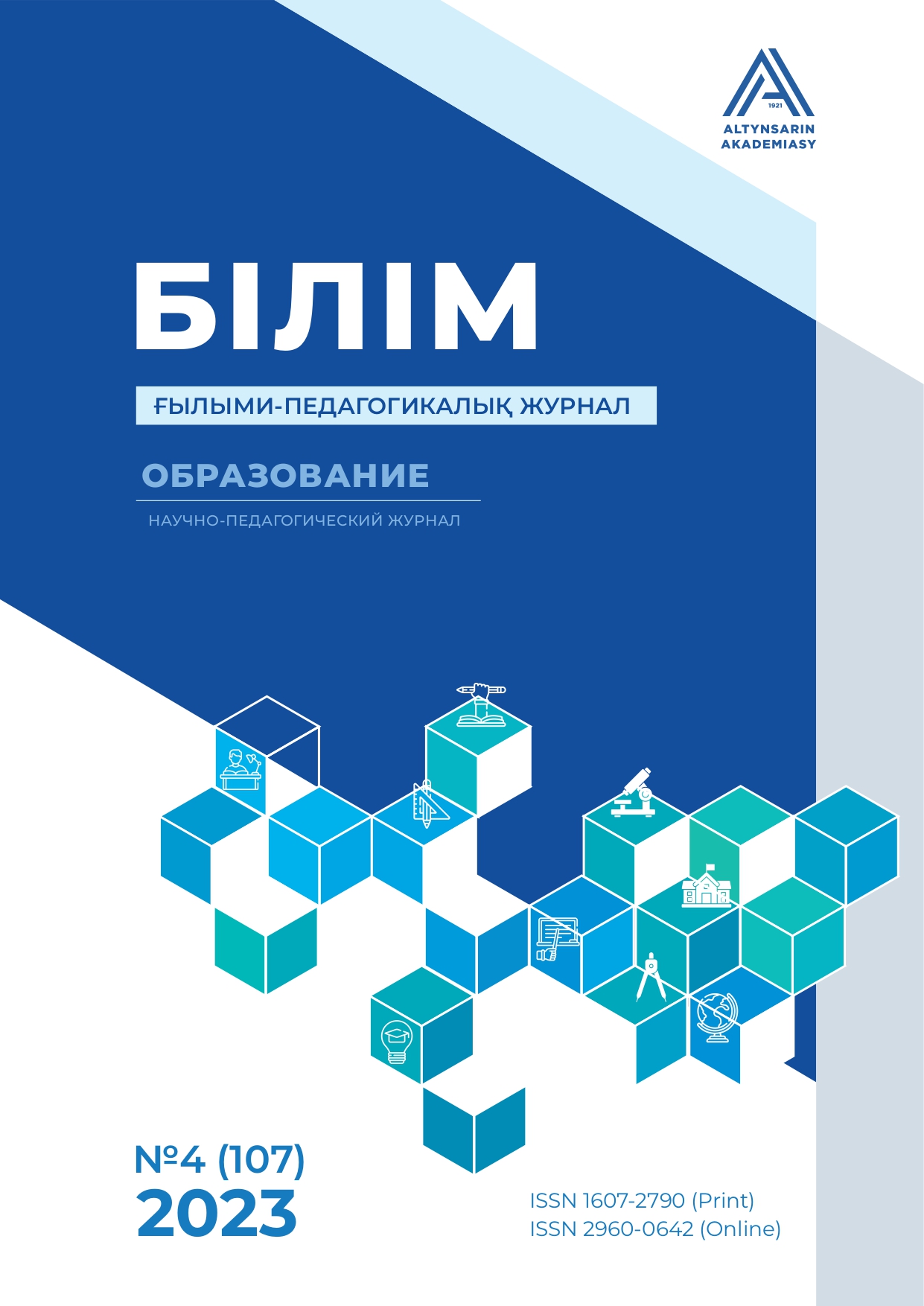Білім беру процесінің инклюзивтігін және әлеуметтенуді қамтамасыз етудің негізі ретінде мектеп оқушыларын кәсіби бағдарлаудың жүйелі инновациялық моделі
##plugins.pubIds.doi.readerDisplayName##:
https://doi.org/10.59941/2960-0642-2023-4-126-141Түйінді сөздер:
кәсіби бағдарлау, инклюзивтілік, ерекше білім беру қажеттіліктері, әлеуметтенуАннотация
Мақала AP14871693 «Мектеп оқушыларын кәсіби бағдарлаудың инклюзивтігін қамтамасыз етудің ұйымдастырушылық-әдіснамалық негіздері» гранттық қаржыландыру жобасы (2022-2024 жж.) шеңберінде зерттеудің негізгі нәтижелерін қамтиды. Жоба барлық стейкхолдерлердің білім алушылардың жеке мүмкіндіктері мен ерекше қажеттіліктеріне жауап беретін кәсіпті саналы түрде таңдауға дайындаудағы іс-қимылын үйлестіретін тетіктердің әзірленбеуінен тұратын проблеманы зерттеуге бағытталған. Жобаны іске асыру жоспарына сәйкес инклюзивті оқыту жағдайында мектеп оқушыларын кәсіби бағдарлау мен әлеуметтенуінің жағдайын зерттеу жүргізілді. Авторлар ерекше білім беруді қажет ететін балалар санының жыл сайын артуына және еңбек нарығының сұраныстарының тез өзгеруіне назар аударады, себебі бұл қазіргі жағдайда балалардың кәсіби өзін-өзі анықтауында проблема тудырып, ерекше өзектілікке ие болуда. Зерттеу барысында қазіргі мектепте кәсіби бағдарлау жұмысын ұйымдастыру жүйесінің ерекшеліктерін, стейкхолдерлердің кәсіби бағдарлау жүйесіндегі рөлі мен оған қаншалықты тартылғанын зерделеу, білім алушылардың кәсіпті саналы түрде таңдауға дайындығы туралы педагогтердің пікірін анықтау, мектептегі кәсіби бағдарлау жұмысының тиімділігіне кедергі келтіретін факторларды анықтау секілді міндеттер іске асырылды. Зерттеу нәтижелері бойынша стейкхолдерлердің іс-әрекеттеріндегі бытыраңқылық пен ретсіздік жөнінде тұжырымдар жасалды, бұл еңбек нарығының жүйелі бұрмалануына, біліктілігі төмен жұмыс күші мен жұмыссыздар сегментінің, оның ішінде жастардың осал бөлігінің өкілдері арасында жұмыссыз жастардың артуына алып келеді. Анықталған проблемаларды шешу ретінде мектеп оқушыларының жеке мүмкіндіктері мен ерекше қажеттіліктерін ескере отырып, кәсіби бағдарлаудың теориялық негізделген жүйелі инновациялық моделі ұсынылады. Бұл модельдің орындылығы мен тиімділігі жүйелілік, қолжетімділік, инклюзивтілік, ашықтық, келісімділік, үздіксіздік принциптерін сақтау және ұйымдастырушылық, экономикалық, құқықтық, білім беру, өнегелік аспектілерін қамтуға негізделген.
 ҚАЗ
ҚАЗ РУС
РУС ENG
ENG
